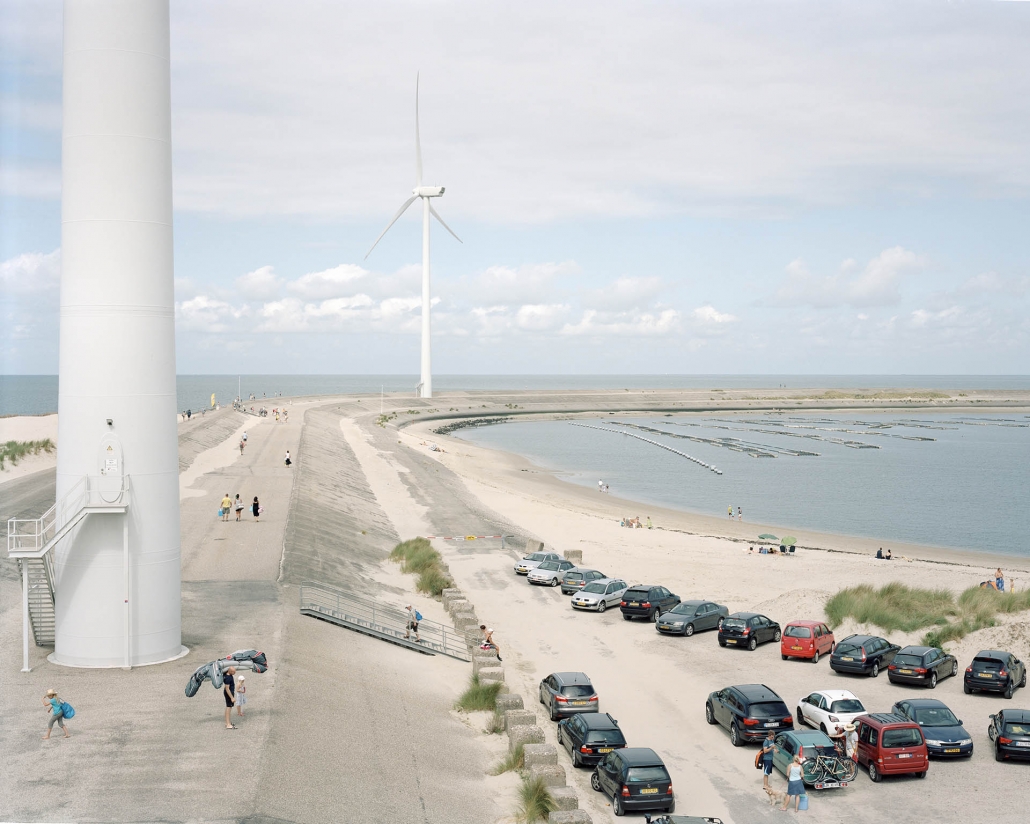STATE OF NATURE - MONSANTO, UNE ENQUÊTE PHOTOGRAPHIQUE - POST-NUCLEAR IDENTITY
This post is also available in:
 French
French
STATE OF NATURE
Photographies by Claudius SCHULZE
Claudius Schulze travelled 50,000 kilometers across Europe to photograph landscapes with a picturesque appearance from an aerial work platform using a large-format camera. However, each landscape has its flaws: people set protective measures against natural disasters which became an inseparable part of the landscape.
During the Anthropocene, the geological era when the earth and the atmosphere are affected by the consequences of human activity, extreme weather conditions constantly increase the threat of storms, floods and avalanches. So far, it’s the civil engineering work that has been protecting us from the dangers which have already had dramatic consequences elsewhere in the world.
The photographs of Claudius Schulze do not only show that idyllic landscapes are crossed by these bastions, but that, very often, these landscapes could not even exist without them.
MONSANTO, UNE ENQUÊTE PHOTOGRAPHIQUE
Photographies by Mathieu ASSELIN
Only for them, dozens of Monsanto’s Superfund sites (contaminated sites of high priority for the US Environmental Protection Agency) throughout the United States are harming hundreds of communities and their surrounding areas, bringing terrible consequences for health and the environment. Monsanto has close ties with the US government, particularly with the FDA (US Food and Drug Administration). The company is also closely linked to many other economic and political powers all over the world.
The company is involved in misinformation campaigns, in persecution of institutions and individuals, especially scientists, of farmers and activists who dare to disclose their crimes. Monsanto is spreading new technologies and new products while scientists, environmental institutions and human rights organizations are alerting us about issues such as public health, food security and ecological sustainability on which depends our future on this planet.
All this is particularly worrying since Monsanto is entering a new chapter of contempt for our planet through the creation and commercialization of GMOs. Looking at the past and present of the company, this project aims to describe the nearest future of Monsanto.
POST-NUCLEAR IDENTITY
Photographies by Neringa REKASIUTE
Photographer Neringa Rekašiute focused her interest on Visaginas, a small Lithuanian town in an identity crisis after the closure of the nuclear power station.
Visaginas was founded in 1975 to accommodate workers from all over the Soviet Union to work in the newly built nuclear power station. The city became a unique phenomenon – almost all its residents were of the same age, the same university degrees, but all were different in terms of ethnicity, language and religion. The city was a ”Soviet utopia made reality” – a modern, highly educated and wealthy town surrounded by forests and lakes. The nuclear power station was a source of identity and pride for newcomers. Most of the town’s inhabitants were in one way or another linked to the atomic reactor. Unsurprisingly, the closure of the plant has had a considerable economic and psychological cost to the inhabitants of the city.
Today, Visaginas has the image of a pro-Russian city with a separatist spirit, unknown to most Lithuanians. Remnants of the past persist, anger and nostalgia for ”lost greatness” float in the background, but the new generation is trying to find new postnuclear identities and to progress.
Images non-légendées, crédits photo : Neringa Rekašiute, exposition en partenariat avec le Kaunas Photo festival
From 21/09/2019 to 05/01/2020
Le Quadritalère
22 rue Saint-Pierre
60000 BEAUVAIS
France
Opening hours : Tuesday to Friday from 12pm to 6pm, Saturday and Sunday from 10am to 6pm
Phone : 03 44 15 67 00
info@diaphane.org
www.photaumnales.fr



